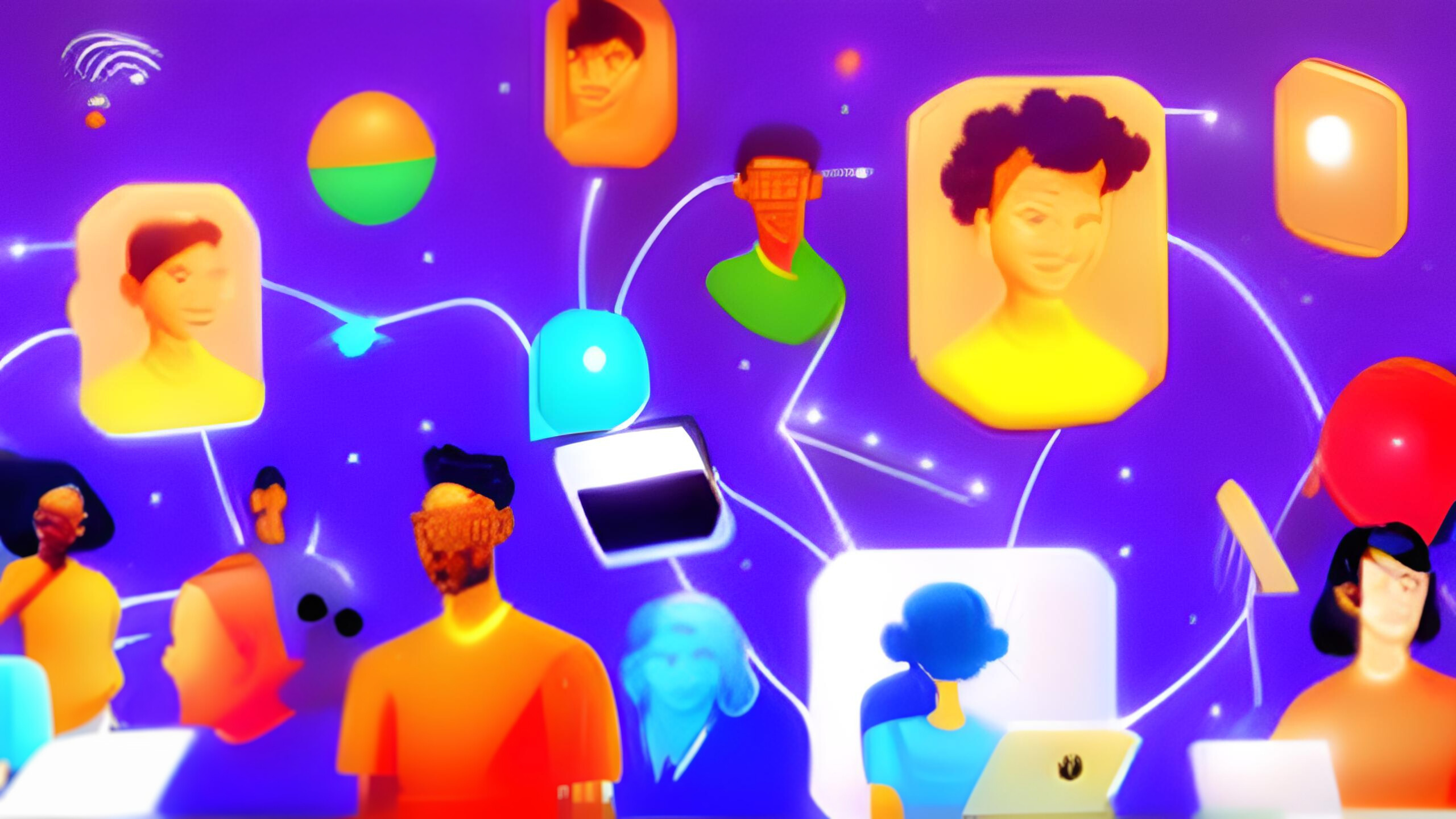Are you ready for the Education Revolution? Picture a world where your classroom experience is tailored just for you, where personalized learning pathways guide your every step, and where your teacher is not only your mentor but also your AI-powered learning companion. Welcome to the future of education in an AI-integrated world!
The Advent of AI in Education
Artificial Intelligence (AI) has made significant strides in various sectors, and education is no exception. The integration of AI in education is revolutionizing the way we learn, teach, and interact with knowledge.
With the advent of AI tools like OpenAi’s ChatGPT, Anthropic’s Claude, and other Large Language Models (LLMs), the way we teach and learn is undergoing a significant transformation. This article explores the impact of AI on education, drawing insights from various sources, including the experiences of Ethan Mollick, an associate professor at the University of Pennsylvania’s prestigious Wharton School, and the innovative practices of Khan Academy.
As a student, I’ve previously dabbled with online learning platforms like Khan Academy without even realizing that AI was at work behind the scenes. But it got me thinking: how will AI shape the education of tomorrow, and what role will teachers play in this digital revolution? Let’s dive in and explore the exciting possibilities that AI integration holds for the future of education.
AI Revolution in the Classroom
The use of AI in classrooms is not a futuristic concept anymore; it’s happening right now. From personalized learning experiences to efficient administrative tasks, AI is reshaping the educational landscape.
Ethan Mollick has embraced this change and integrated AI into his teaching methodology. Instead of forbidding the use of AI, he required his students to use these revolutionary new tools in a variety of ways, from generating ideas to producing written material. The results? A resounding success, with some lessons learned along the way.
Mollick’s experience with AI in his classrooms revealed that with the right approach and guidance, AI can be a powerful tool in enhancing the learning experience. Mollick’s students were able to generate high-quality essays and innovative project ideas using AI, demonstrating the potential of these tools in fostering creativity and critical thinking.
Real Time Feedback and Suggestions
One of the ways AI can enhance the learning experience is by providing teachers with real-time feedback and suggestions, helping them refine their methods on the fly. For instance, consider a high school math instructor who is teaching a complex concept like calculus. As they explain the concept and solve problems on the board, an AI system in the background analyzes the teacher’s methods and provides feedback in the moment. The AI might suggest a different approach to solve a problem that could be easier for students to understand, or it might recommend the teacher to slow down or repeat a particular point that students often find difficult.
Dynamic AI Education Strategies and Engagement Analysis
After class, the AI can produce post-lesson reports that summarize classroom dynamics, such as student speaking time or the questions that triggered the most engagement. These insights can help teachers improve their strategies and create a more engaging learning environment.
Khan Academy: A Case Study in AI Integration
While Mollick’s experience provides valuable insights into the use of AI in a traditional classroom setting, let’s shift our focus to a different educational platform that has effectively harnessed the power of AI: Khan Academy.
Khan Academy, a non-profit educational organization, has been at the forefront of integrating AI into its platform. With over 20 million monthly active users, Khan Academy uses AI to personalize learning experiences for students. The platform’s AI algorithms analyze a student’s performance and adapt the learning content accordingly. That ensures each student receives a personalized learning path that suits their individual needs.
Khan Academy’s AI-powered system provides instant feedback to students, allowing them to understand their mistakes and learn at their own pace. This immediate feedback mechanism, powered by AI, is a game-changer in promoting active learning and student engagement. As we navigate the future of AI in education, it’s crucial to learn from future focused education platforms like Khan Academy, who are using AI not just as a tool, but as a catalyst for educational equity and innovation.
The Impact of AI on Teaching and Learning
AI’s impact on education is profound and multifaceted. It has the potential to transform teaching and learning, making education more accessible, personalized, and effective. For instance, AI can automate administrative tasks, freeing up time for teachers to focus on instruction. It can also provide personalized feedback to students, enhancing their learning experience.
Moreover, AI can offer students a safe environment to learn without fear of judgment. Imagine a student who is struggling with reading. The student might feel embarrassed to read aloud in class for fear of making mistakes and being judged by peers. An AI-powered reading assistant can help in this situation. The student can read aloud to the AI, which provides constructive feedback without any judgment. This helps the student improve their reading skills and builds their confidence. AI-powered platforms can provide constructive feedback that does not carry the same emotional weight as a human’s response, encouraging students to take risks and engage more deeply in their learning.
While AI can provide quick and accurate responses, it can also produce incorrect answers. Let’s take the riskier example of an AI-powered homework helper. A student might ask it to solve a complex algebra problem. The AI, in its attempt to provide a quick response, might make a calculation error leading to an incorrect answer. AI in its current state has become infamous for hallucinating answers in a very convincing way. Despite the error being wrapped in a well-structured explanation, the final answer is still wrong, demonstrating that while AI can be a useful tool, it’s not infallible and should be used with caution.
The Future of AI in Education
The future of AI in education looks promising. With advancements in AI technology, we can expect more personalized, engaging, and effective learning experiences. However, it’s crucial to navigate this future with caution. While AI has the potential to transform education, it also poses challenges and risks, such as data privacy concerns and the potential for widening educational inequities.
The integration of AI in education is not without its challenges. Concerns about AI’s accuracy, potential for misuse, and ethical implications are valid and need to be addressed.
In conclusion, AI in education is not just a trend; it’s a change in thinking that is here to stay. As educators, students, and stakeholders in the education sector, it’s crucial to embrace this change and harness the power of AI to enhance learning and teaching experiences. In the words of Ethan Mollick, “We taught people how to do math in a world with calculators. Now the challenge is for educators to teach students how the world has changed again, and how they can adapt to that.”
As we move forward, the focus should be on how to use AI effectively rather than whether to use it or not. Inspired by Mollick’s experience and Khan Academy’s success, the benefits of AI in education are too significant to ignore. With proper training and ethical guidelines, AI can revolutionize the way we teach and learn, and integrating it into our education now prepares students for a future where AI is likely to be ubiquitous.


